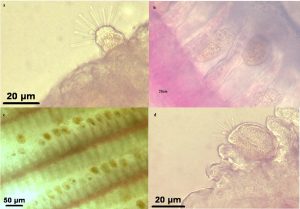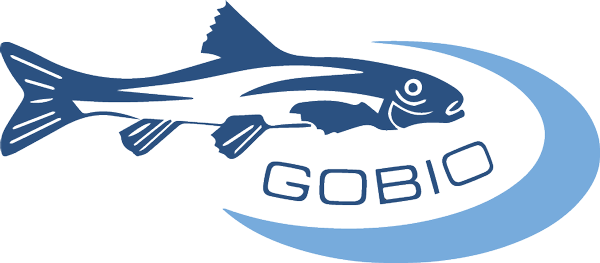Health and reproductive status of fish
We carry out histopathological, immunohistological and parasitological examinations of fish (fisheries aquaristics, biomonitoring, laboratory studies) to determine their health and reproductive status.
We also have many years of experience in the field of hormone physiological examinations, e.g. determination of hormone titers in the blood, visualization of metabolic pathways and the detection of hormone-dependent proteins, e.g. estradiol-controlled yolk protein Vitellogenin.
From the two dominant species of the native fish fauna(Rutilus rutilus, Perca fluviatilis) we have created a “normal table” of gonad development and seasonal gonad rebuilding based on a multi-year study of more than 3000 fish. This makes it possible to recognize deviations from normal development and to predict impairment of the fish population in the sense of an early warning tool.

Suctoria on the gill of a perch
Parasitological examinations
Our team includes experts in parasitological examinations of fish. We are experienced in the diagnosis of parasitic diseases (including specific viral and bacterial infections) of river, food and aquarium fish.
Fish are naturally relatively frequently infested with parasites. Many of these “stowaways” use the fish as a habitat and have little or no impact on their host. A strong multiplication of parasites usually only occurs if the fish is weakened by unfavorable conditions, e.g. poor water quality.
GOBIO GmbH has an extensive collection of data on the natural extent of parasitization in fish. This is a basic prerequisite for recognizing deviations and disturbances in the ecosystem based on the health status of fish.
In particular, the spread of emerging diseases due to environmental pollution or climate change requires years of experience in the diagnosis of parasitic, viral and bacterial diseases.
